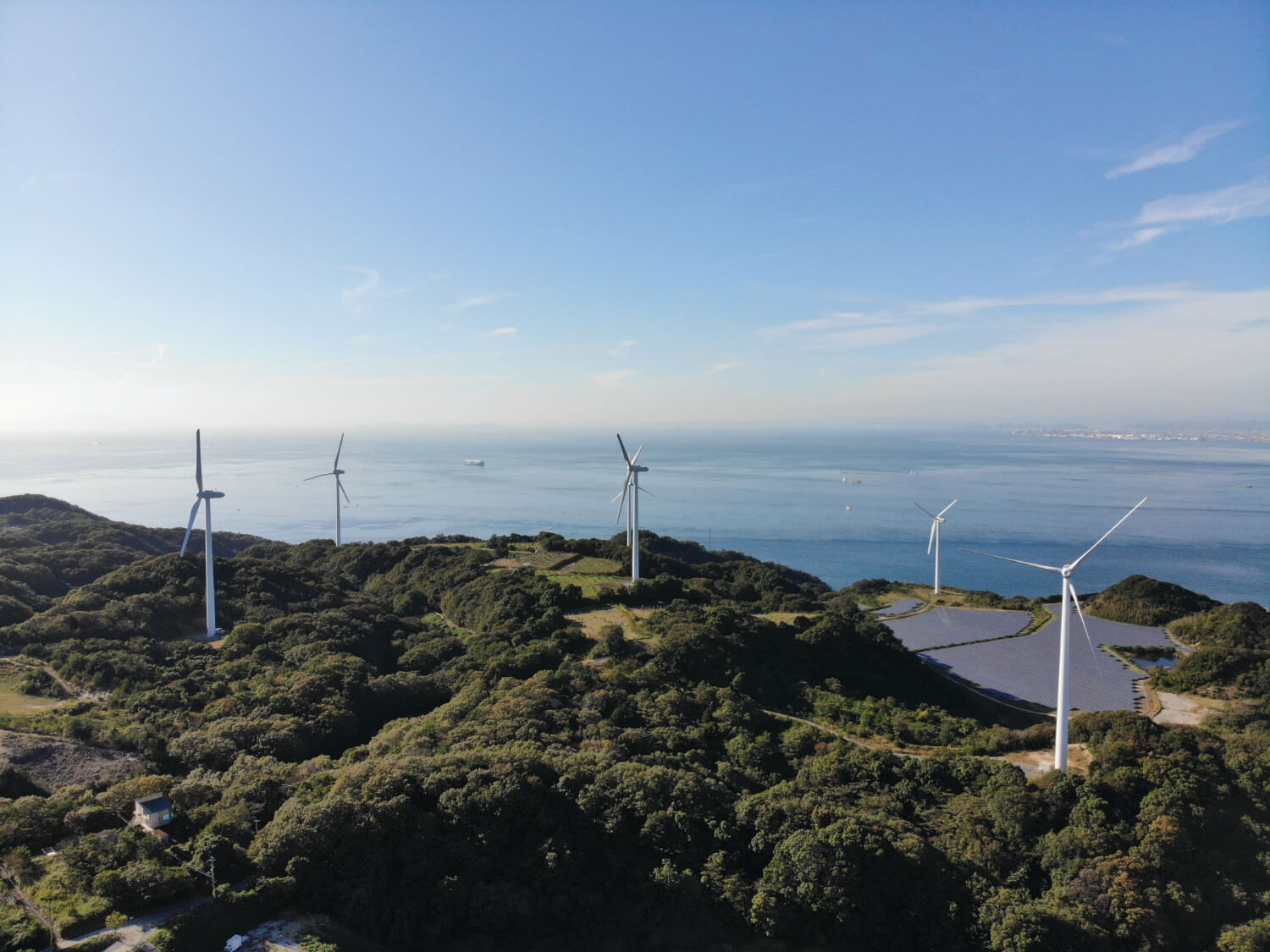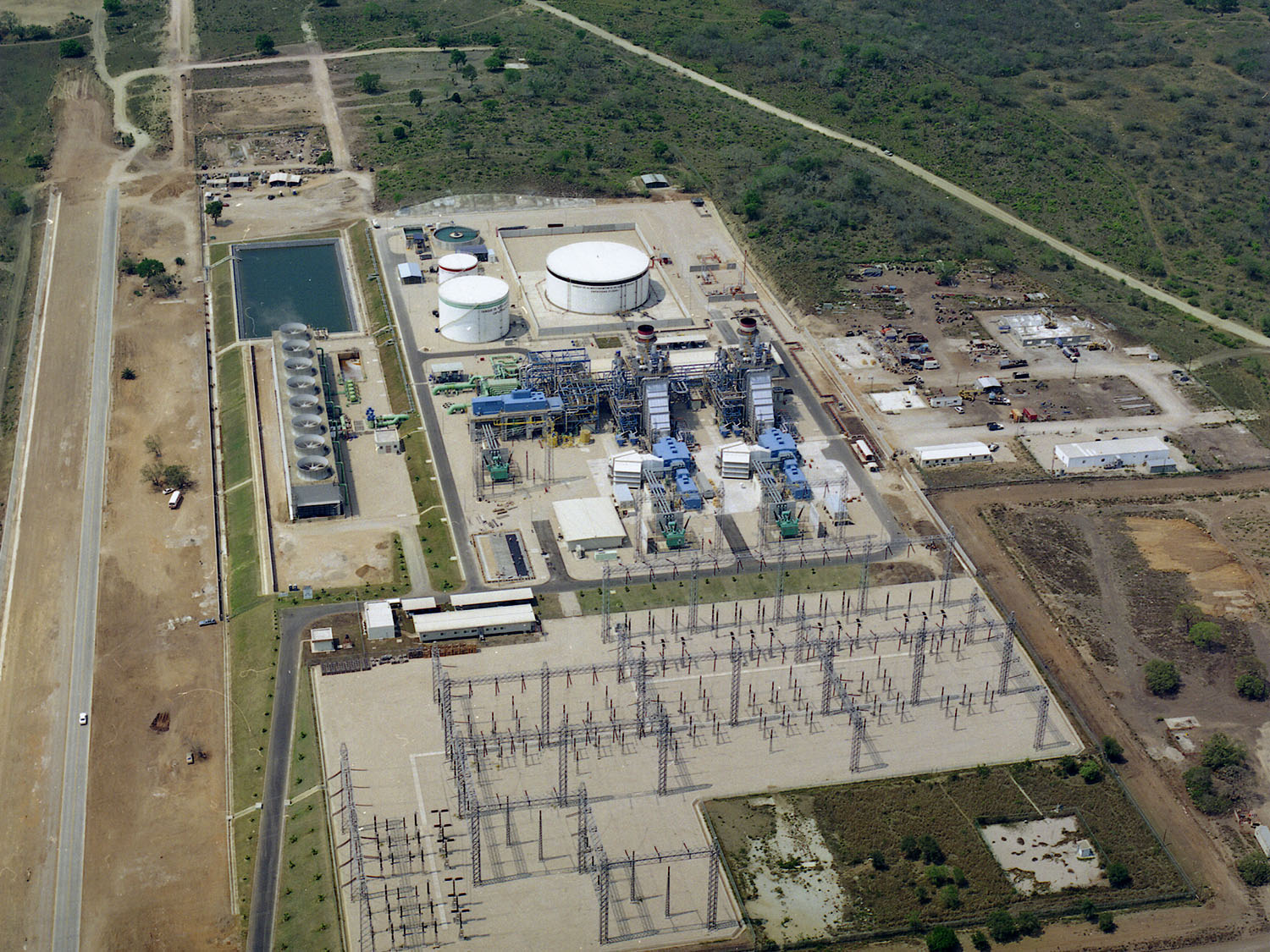As the world’s third largest economy and fifth largest energy market – three times larger than the UK and four times the size of Australia – Japan offers significant opportunities for experienced investors. That’s true over the short, medium and long term as the country’s stable government has set out an ambitious roadmap to tackle climate change while also helping to bolster energy security for the nation – in 2021 it was the world’s second largest importer of LNG and third- largest importer of coal.
With a commitment to reduce greenhouse gas emissions by 46% from 2013 levels by 2030, and its Net Zero by 2050 pledge, Japan recently revised its target for energy from renewable sources in its power mix to between 36% and 38% by 2030 (up from 22% to 24%).
The energy mix
Renewable capacity is set to come from a variety of technologies, including rooftop, floating and utility-scale solar, where the target is for an additional 50GW of capacity by 2030, and onshore wind, where the target is for 19GW. A little further out, offshore wind (including the potential for floating offshore wind, given that the seas around Japan are deep) is also a promising area for investment, where the aim is to have between ~31GW and 45GW of capacity by 2040. It is generally viewed that these targets are a little ambitious but there is still room to expand quickly because of the fact that, by the end of 2021, Japan had installed 74GW of solar capacity, having made great strides over the past ten years.
Energy transition will require the construction of new gas-fired power plants as well as investments in energy efficiency. The country will need investment in the grid, which is a current constraint on new solar and wind projects, while the development of batteries and storage will help mitigate intermittency issues.
Japan also sees longer term potential in developing hydrogen, ammonia and carbon capture. Finally, it is aiming to increase nuclear production. There is much more focus on this given high fuel prices, although this will need to be carefully managed given public sensitivities following the 2011 Fukushima disaster.
The 4Ds
These shifts are driven by “4D”. Under Deregulation, the power market has undergone far-reaching reforms, moving from a regulated integrated utilities model to embrace the unbundling of power generation and transmission and distribution, while Decentralisation is seeing a push for more power to be generated locally. Digitalisation, as elsewhere, is transforming business, connectivity and data usage, and Decarbonisation is driving the move to renewables and putting pressure on corporates to use clean energy sources for all activities, but especially for high energy manufacturing, such as auto production.
Recent changes to the pricing regime, which saw feed-in tariffs replaced by a new feed-in premium, are driving demand for corporate PPAs and we see significant opportunity for development here. These will lead to installations of rooftop solar in some instances, but we believe most will result in utility-scale projects. As experienced investors in other nascent PPA markets, we have the expertise and relationships needed to secure the right contracts and we believe we have a role to play in providing access for smaller renewable energy providers to larger corporates on attractive terms.
Our strategy in Japan reflects the way we work in other markets. In renewables, we are seeking to invest in smaller platforms with the aim of building scale through both targeted acquisitions and organic growth. High demand from corporates for green energy will be a particular focus for expansion, since supply is currently limited due to land and grid constraints, making large scale onshore renewables deployment in Japan difficult. We can apply our experience of structuring and building new projects to fill this gap and help shape the market as it develops.
Some of these opportunities may stem from optimising existing projects that would benefit from operating expertise and a capacity to improve efficiency, invest in upgrades, put in place appropriate funding, and build scale among smaller, fragmented players. The market also has a number of approved projects that have stalled and we can add significant value by investing to take these developments forward to completion and operation.
With a commitment to reduce greenhouse gas emissions by 46% from 2013 levels by 2030, and its net zero by 2050 pledge, Japan recently revised its target for energy from renewable sources in its power mix to between 36% and 38% by 2030.
Others will be new projects. Japan benefits from low-cost finance and high liquidity among the nation’s large pension funds and insurance companies. However, much of this capital has a risk/return profile which is better suited to operational assets, with less willingness to take on development or construction risks. With many of the more straightforward projects having already been completed, and with tariffs reducing compared to the initial years of feed-in tariffs, Japan will need experienced builders and operators able to meet more challenging briefs if it is to meet its decarbonisation goals. We can provide much needed capital, on the ground presence combined with global reach, and knowledge of different pricing models to build greenfield projects and create energy businesses that will be highly attractive to investors at exit.
Actis plans to invest us$500 million in Japan over the coming few years, with an initial focus on onshore wind and solar.
We are excited about the investment potential in the Japanese energy market. Actis plans to invest US$500 million in Japan over the coming few years, with an initial focus on onshore wind and solar.
There is a significant re-rating opportunity available by de-risking projects through development and construction, and this combined with our ability to scale up businesses, acquire underperforming operational assets and portfolios and make operational improvements, and deliver value through our global procurement capability, will enable us to achieve attractive returns for our investors.
We are also keen to support government decarbonisation and energy transition policy through investment in offshore wind, new gas-fired plants, battery storage and grid stabilisation. A bright future beckons for renewable energy projects in Japan.








